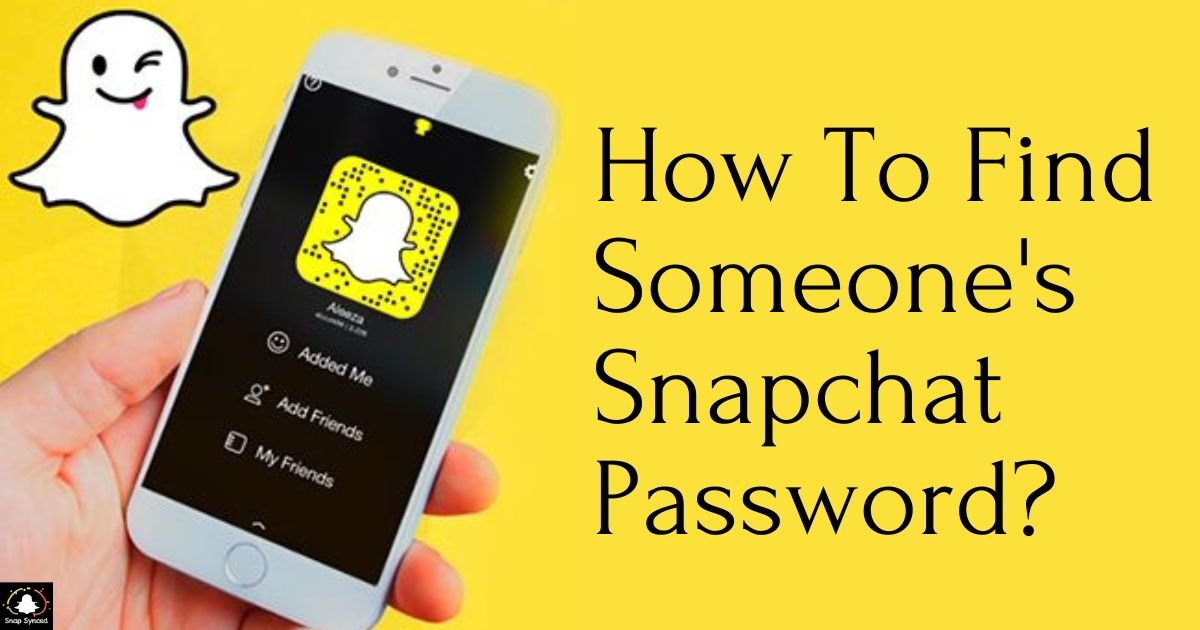In an era dominated by social media, Snapchat has emerged as one of the most popular platforms for sharing moments and staying connected with friends.
There may come a time when you need to access someone else’s Snapchat account, whether it’s for legitimate reasons like parental monitoring or for more dubious intentions.
While it’s important to respect privacy and ethical boundaries, understanding the methods people might use to find someone’s Snapchat password can also help individuals safeguard their own accounts from potential breaches.
Methods of Finding Someone’s Snapchat Password
Social Engineering
- Social engineering involves manipulating individuals into divulging confidential information. This method relies heavily on psychological manipulation rather than technical exploits.
- Perpetrators may pose as a trusted individual or authority figure to coax the victim into revealing their password or other sensitive information.
Phishing
- Phishing is a fraudulent attempt to obtain sensitive information by disguising oneself as a trustworthy entity in electronic communication.
- Perpetrators create fake login pages that mimic Snapchat’s interface and trick users into entering their credentials unknowingly.
Keylogging
- Keylogging involves the use of software or hardware to record keystrokes on a device secretly.
- Perpetrators install keylogging software on the victim’s device to capture their Snapchat login credentials as they type them.
Brute Force Attacks
- Brute force attacks involve systematically guessing a user’s password until the correct one is found.
- Perpetrators use automated software to try countless combinations of passwords until they gain access to the account.
Legal and Ethical Implications

| Aspect | Legal Consequences | Ethical Considerations |
| Unauthorized Access | Criminal charges and fines | Respect for privacy |
| Identity Theft | Legal penalties | Autonomy |
| Privacy Violation | Potential imprisonment | Trustworthiness |
| Jurisdiction | Varied legal implications | Personal integrity |
| Relationship Impact | Legal ramifications | Responsible behavior |
It’s imperative to navigate digital interactions with a keen awareness of legal boundaries and ethical considerations to foster a safe and trustworthy online environment for all, understanding nuances like ‘What Does Hub Mean On Snapchat?‘ can contribute to this awareness.
Protecting Your Snapchat Account

To mitigate the risk of unauthorized access to your Snapchat account, consider implementing the following security measures:
Enable Two-Factor Authentication
- Two-factor authentication adds an extra layer of security by requiring users to provide a second form of verification, such as a code sent to their phone, in addition to their password.
Use Strong, Unique Passwords
- Avoid using easily guessable passwords and opt for combinations of letters, numbers, and special characters.
- Use a different password for each online account to minimize the impact of a potential breach.
Be Wary of Phishing Attempts
- Exercise caution when clicking on links or downloading attachments from unknown sources, as they may be phishing attempts.
- Verify the legitimacy of websites and login pages before entering your credentials.
FAQ’s
Is it legal to find someone’s Snapchat password?
Accessing someone’s Snapchat account without their permission may lead to legal consequences, including charges for unauthorized access and identity theft.
Can I use software to find someone’s Snapchat password?
Using software or tools to hack into someone’s Snapchat account is illegal and unethical, violating privacy and trust.
Is phishing an effective method to obtain someone’s Snapchat password?
Phishing, while potentially effective, is a deceptive and unethical practice that can lead to legal repercussions and strain relationships.
Conclusion
While the temptation to find someone else’s Snapchat password may arise for various reasons, it’s essential to approach the issue with caution and respect for privacy. Engaging in unethical or illegal activities can have severe consequences and undermine trust in interpersonal relationships.
Instead, focus on safeguarding your own accounts and promoting responsible online behavior within your community. Respecting boundaries and privacy is the cornerstone of a trustworthy digital environment.








